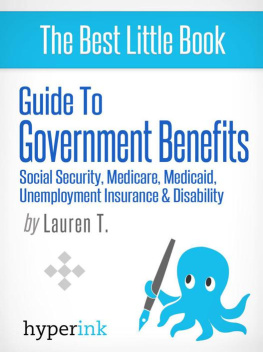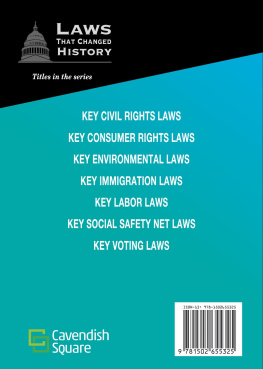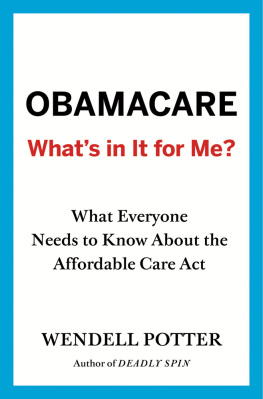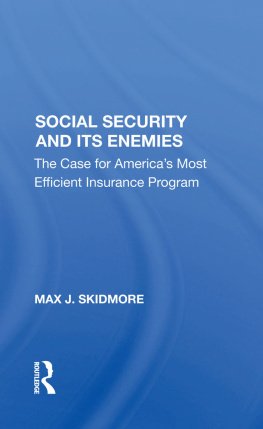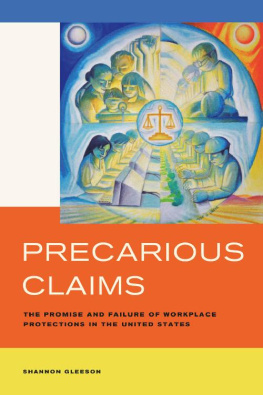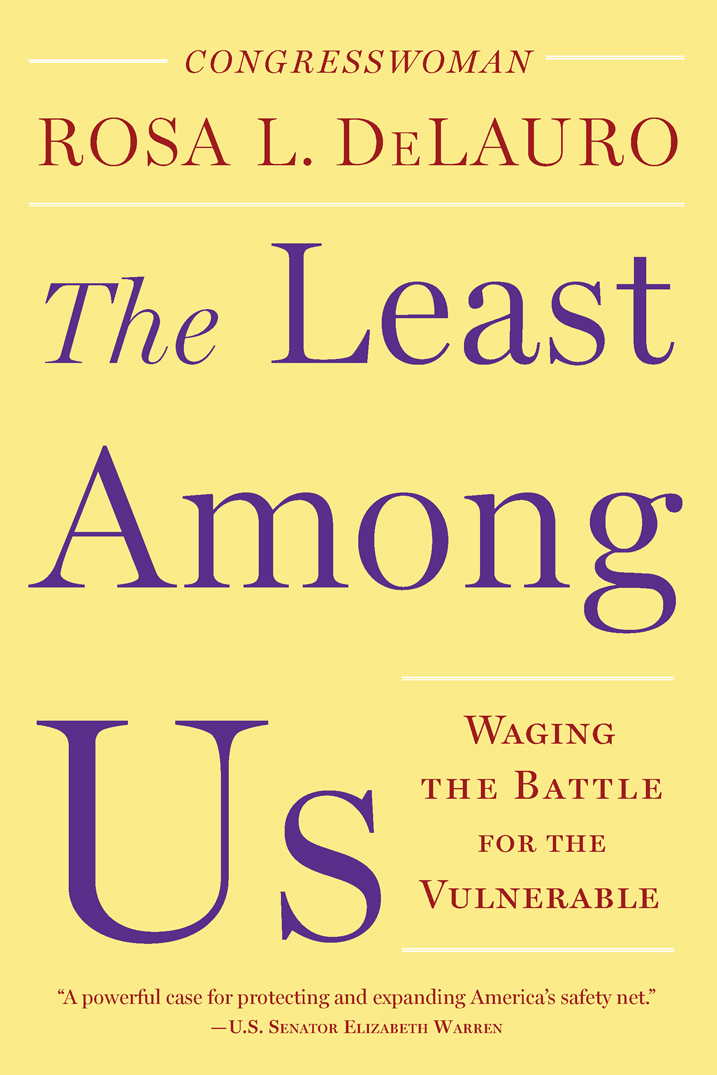More Praise for The Least Among Us
Rosa is a passionate and unrelenting champion for women, children, and working people, and now she shares the lessons we can learn from the many tough fights she has led in Congress. Rosa makes a powerful case for protecting and expanding Americas safety net so that every kid in this country has a real opportunity to get ahead.
U.S. Senator Elizabeth Warren
Can you imagine how cool the world would be if we had Rosa DeLauro getting s*** done instead of Congress being held hostage by terrible people!
Wonkette
Congresswoman Rosa DeLauro is a one-woman truth squad when it comes to calling out the falsehoods and cruelties of current right-wing efforts to slash Social Security, health insurance, and other safety net programs. Her vividly narrated book weaves together policy ideas and personal stories to highlight stakes in the current battles.
Theda Skocpol, Victor S. Thomas Professor of Government and Sociology, Harvard University
Rosa has fought tirelessly, passionately, and courageously for the weakest and most vulnerable among us. In this compelling book, she both records the battles from the inside, and offers a comprehensive blueprint for the future.
Norm Ornstein, resident scholar, American Enterprise Institute
If you care about our nation in these turbulent times, read The Least Among Us and engage in our political process. We need more people with Rosa DeLauros passion for justice.
Sister Simone Campbell, SSS, executive director, Network Lobby for Catholic Social Justice
The Least Among Us brings center-stage Rosa DeLauros strong, intellectual understanding of the issues with a visceral commitment to protect those who most need our help. This book provides an important look back on the fights we have won and lost and a roadmap forward to achieve this most noble and necessary pursuit.
Former U.S. senator Christopher J. Dodd
Congresswoman DeLauro has been at the pinnacle of national power for a quarter century, and yet shes never forgotten where she came from. Read this memoir-manifesto and come away inspired.
Jacob Hacker, Stanley B. Resor Professor of Political Science, Yale University
Rosas book rings to me like the political analog of what Peter, Paul, and Mary aspired to achieve for us in activist/musical terms. We sought to inspire a thirst for justice and fairness in our songs, but Rosas tenacious advocacy translates these values into action. Read this book and restore your faith in the woolly world of politics. For those like Rosa, principle, love of justice, and humility remain uncorrupted, even if the F word is unceremoniously dropped from time to time.
Peter Yarrow of Peter, Paul, and Mary

2017 by Rosa DeLauro
All rights reserved.
No part of this book may be reproduced, in any form, without written permission from the publisher.
Requests for permission to reproduce selections from this book should be mailed to: Permissions Department, The New Press, 120 Wall Street, 31st floor, New York, NY 10005.
Published in the United States by The New Press, New York, 2017
Distributed by Perseus Distribution
ISBN 978-1-62097-221-2 (e-book)
CIP data is available
The New Press publishes books that promote and enrich public discussion and understanding of the issues vital to our democracy and to a more equitable world. These books are made possible by the enthusiasm of our readers; the support of a committed group of donors, large and small; the collaboration of our many partners in the independent media and the not-for-profit sector; booksellers, who often hand-sell New Press books; librarians; and above all by our authors.
www.thenewpress.com
Composition by dix!
This book was set in Fairfield LH
2 4 6 8 10 9 7 5 3 1
To
the past, my parents, Ted and Luisa,
the present, my husband, Stan Greenberg,
and
the future, my grandchildren, Rigby, Teo, Sadie, and Jasper
Table of Contents
Guide
Contents
IT BEARS REPEATING THAT THE reason companies do not feel free to poison us, sell us spoiled meat, lock our daughters up in ninth-floor sweatshops with no fire escapes, employ our underage sons in coal mines, force us to work thirteen-hour shifts without overtime or a break, or call in private armies to fire rifles at those of us who dare strike for higher wages is not because companies experienced a moment of Zen and decided to evolve. No. They were forced into greater accountability and social concern by the legitimate actions of a democratic government. In other words, if we depend on goodwill, we are all screwed.
Growing up in New Haven, Connecticut, I saw ample evidence all around me of just how vulnerable hardworking people are in the face of business indifference. In 1957, when I was a barely a teenager, the Franklin Street fire claimed the life of my friends mother. Fifteen people died in that fire because they couldnt escape the smoke and flames. A fire escape was locked, and the ladder would not extend to the ground; there had been no fire drills, and doors opened the wrong way, blocking exits. It was a disaster, and it happened down the street from my house. It is impossible to be an eyewitness to events like that and not be touched by the gravity of our responsibility to one another. The enforcement of fire safety laws and other workplace safety laws is one way to ensure that employers fulfill their obligations to employees.
Technically speaking, the social safety net is an array of government programs that ensure that no American will fall so far down the socioeconomic ladder that getting back on their feet becomes impossible. The social safety net was built up throughout the twentieth century to help working people in times of needand make sure kids do not get punished for their parents poverty. Morally speaking, the social safety net acknowledges that we are accountable to one another. It originated from our recognition that the vulnerable and the poor are not alien populations; they are us, in certain times and sometimes unforeseen circumstances. Economically speaking, having a social safety net makes sense, as I hope I will make clear in the course of this book.
Our safety net is one of our countrys greatest legacies, and it set the stage for a century of unparalleled prosperity that made the United States a beacon for the world. It was not something dreamed up by ideologues with a perverse agenda to weaken the average Americans moral fiberas some of my colleagues now allege. The safety nets growth was incremental and in response to genuine systemic crises. Republicans and Democrats alike supported it. That is why the attacks on it now keep me up at night.
When I interview somebody for a job in my congressional office, I warn them that they need to know I swear a lot. I compete with Rahm Emanuel on the use of the F-word. (He trails me because I am older than he is.) You could say that I swear because I care, or because I am passionate about good policy, or because a colorful vocabulary helps one command attention in a town that is still getting used to strong women. Honestly, I think the impulse comes from speaking with people in my district, hearing their stories, knowing they do not have the same opportunities to speak truth to power as I do. The strong words simply tumble out.
What has me swearing now are the increasingly radical conservative arguments against the safety net. Most stem from a series of falsehoods and misapprehensions rooted in a fundamental distrust of government and people in need. Among my opponents factually challenged assessments:


